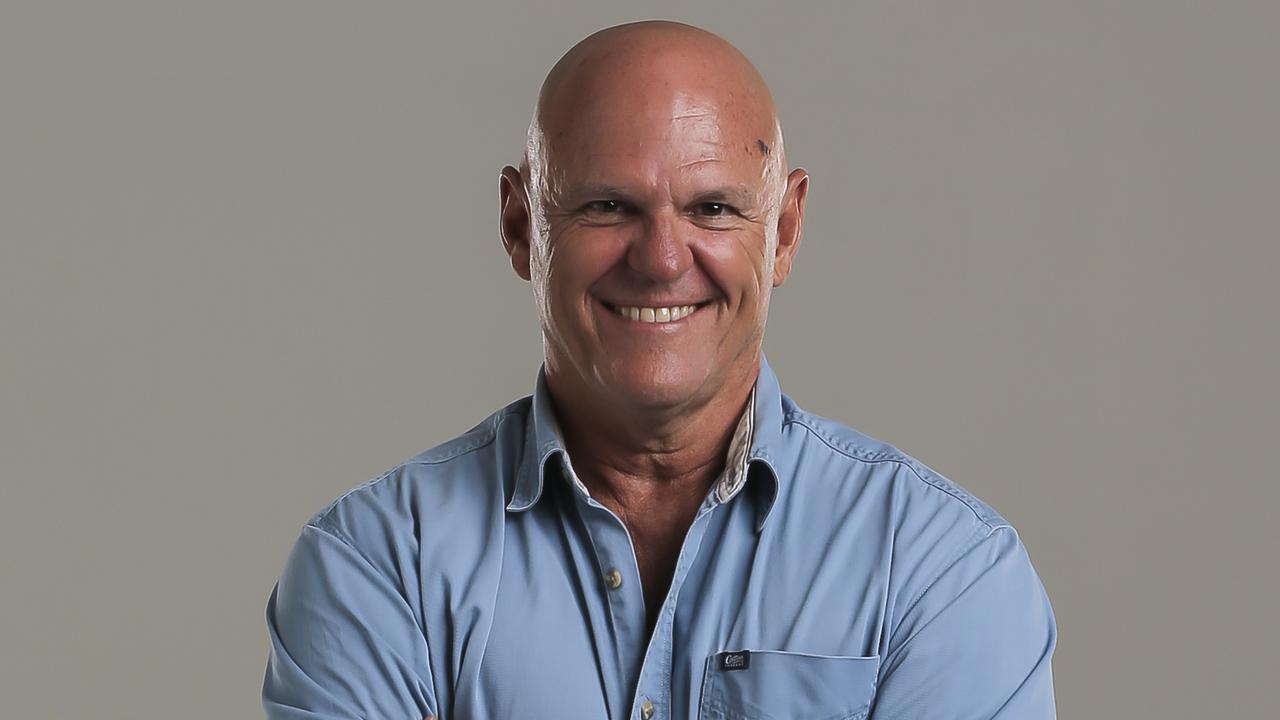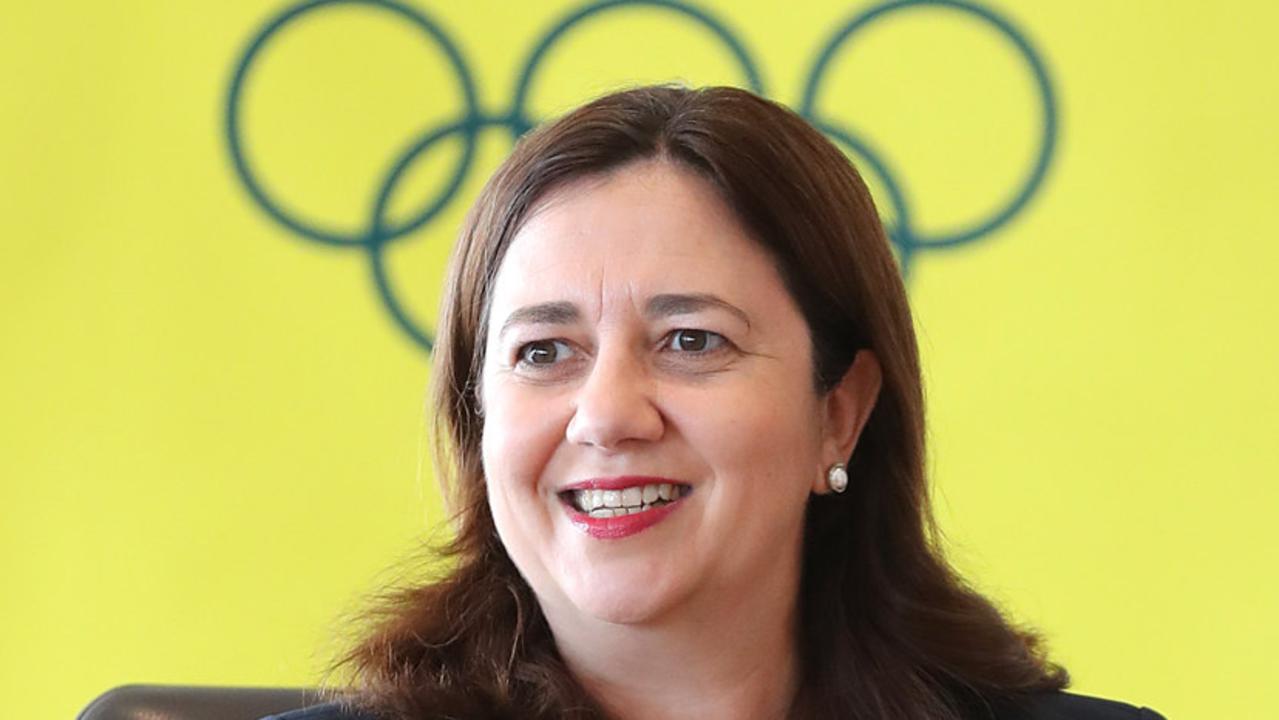Deb Frecklington may need to change tactics to win over voters
Deb Frecklington appears to have read the metaphorical pamphlet on “How to be a Good Opposition Leader” but is failing to find favour with many Queensladers. She should change course now if she wants to win the next election, writes Paul Williams.
Opinion
Don't miss out on the headlines from Opinion. Followed categories will be added to My News.
ONE of the great curiosities of Queensland politics during the 20 months Tim Nicholls led the Liberal National Party was why he failed to appeal to the broad sweep of Queensland voters.
Why did this experienced and urbane politician — who regularly delivered strong news sound bites alongside detailed policy — fail to cut through, even in metropolitan Brisbane where he was based?
Was it really just his history as treasurer in the deeply unpopular Newman government?
Or was he just a little too wooden on television?
Labor still comfortably in front, LNP in slump, but their state leader’s more popular
Opinion: Deb Frecklington and the LNP have a problem with women
Whatever the reason, it seems the Nicholls syndrome is now infecting current LNP leader Deb Frecklington.
Like Nicholls, Frecklington appears to have read the metaphorical pamphlet on “How to be a Good Opposition Leader”.
She’s bright and telegenic, tertiary-educated and articulate, and regularly takes on the Palaszczuk Government in the media.
But again it seems too few Queenslanders want to know.


While it’s true Frecklington’s personal approval rating has grown (now at 35 per cent — higher than any point Nicholls attained), her disapproval, now at 29 points, has also grown as the “don’t knows” shrink away.
But Frecklington’s six points “above water” are still swamped by Palaszczuk’s own nine-point surplus (46 approving and 37 not), and by Palaszczuk’s 17-point lead as preferred premier, 43 to 26.
So what more can Frecklington do?
First, she must counter her old National Party heritage with policies and a persona more attractive to Queensland’s southeast, where two-thirds of voters live.
Frecklington enjoys enormous political capital in and around her home seat of Nanango, given her agribusiness background.
But a majority of Brisbane electors haven’t voted for a farmer since Joh Bjelke-Petersen in 1986 — and they’re unlikely to ever do so again.
Just ask former LNP leader Lawrence Springborg who lost three elections on the trot.

Another strategy — always a tough bind for opposition leaders who are condemned for being “oppositional” — is to tone down her attacks, to replace aggression with assertiveness, and to adopt a more nuanced rhetorical style as a wise alternative premier rather than angry carping critic.
But a change of style also necessitates a change in substance.
During the recent abortion debate, for example, Frecklington was right to offer her MPs a “conscience vote” — and courageous to do so in the face of pressure (some would say bullying) from senior backroom figures.
But Frecklington appeared to lack the sensitive, empathetic touch women and men were crying out for during the debate, especially given — according to a 2017 Fair Agenda poll — that 48 per cent of LNP voters support abortion reform, and 60 per cent of all Queenslanders will vote against an MP opposed to decriminalisation.
In short, Frecklington’s rural conservatism has deafened her to southeast Queenslanders’ socially progressive demands.

The LNP’s silver lining, however, lies in the two years the party has till the next election.
Sadly, their federal LNP counterparts don’t have this luxury of time.
With Monday’s Newspoll indicating a 10-point gap, 55 to 45, in the federal after-preference vote, a heavy defeat for the Morrison Government is all but assured at an election expected next May.
The news is also grim in Queensland, with an aggregate Newspoll, taken between August and October, showing Morrison’s move to the prime minister’s office has done nothing to reverse the slide.
Just 33 per cent of Queenslanders now say they’ll support the LNP (down 10 points from the last election), with 37 per cent supporting Labor.
Worryingly for the LNP, that six-point surge for Labor could deliver Bill Shorten an extra nine seats in Queensland alone. And that’s the ball game right there.

But the LNP will also be worried about its Senate prospects.
Put bluntly, a paltry 33 per cent support and too few preferences from Pauline Hanson’s One Nation (PHON) voters — who, in 2017, showed a remarkable eagerness to preference Labor ahead of the LNP — could see the LNP score just two of the six Senate places, and Labor three.
The really fascinating fight then comes down to the sixth spot.
Remembering Pauline Hanson won’t be a candidate (she comes up for re-election in 2022), will PHON struggle to take back the spot it won in 2016, but has since twice lost (once when Malcolm Roberts was disqualified, then again when replacement Fraser Anning quit the party)?
Or will the Greens, currently on 8 per cent and the beneficiary of Labor preferences, take it?
Or will Katter’s Australian Party, now having ditched Anning, succeed given the party’s inroads at last year’s state election? Watch this space.
Dr Paul Williams is a senior lecturer at Griffith University.


